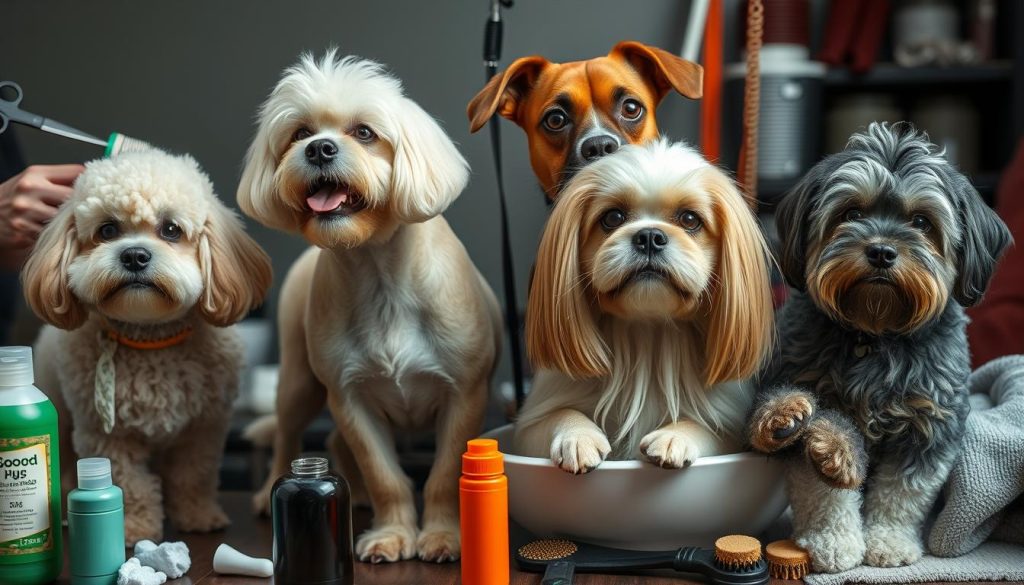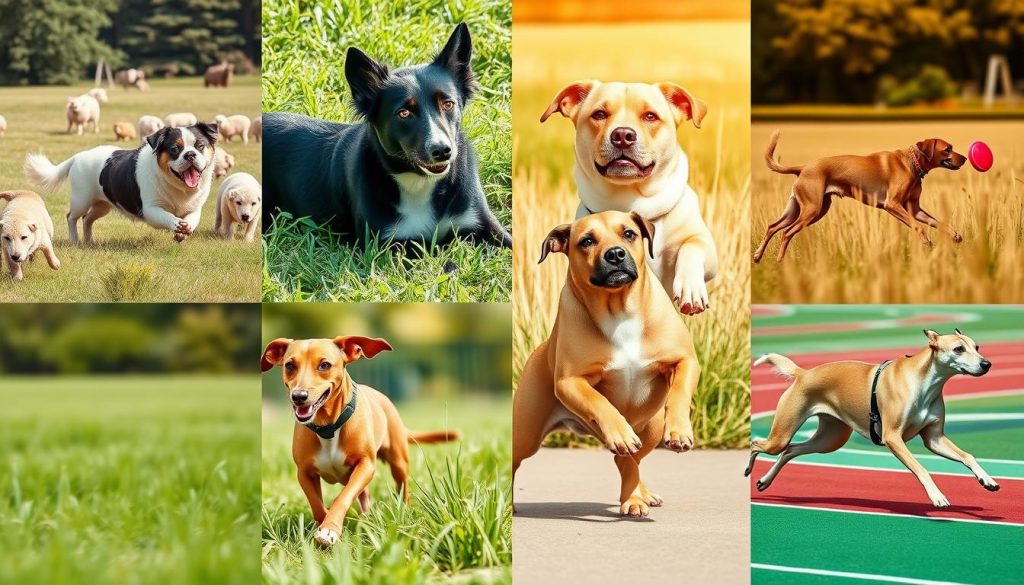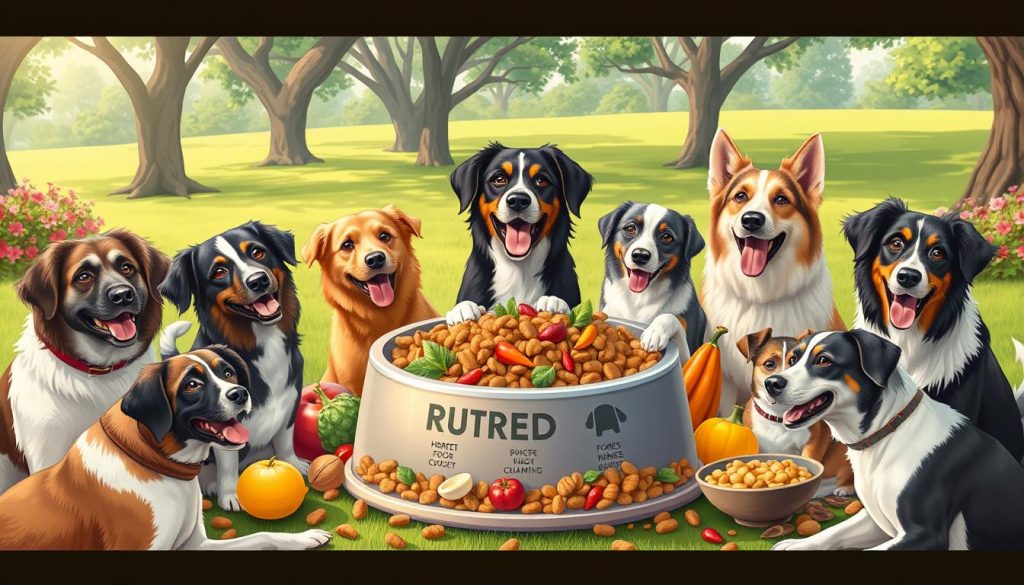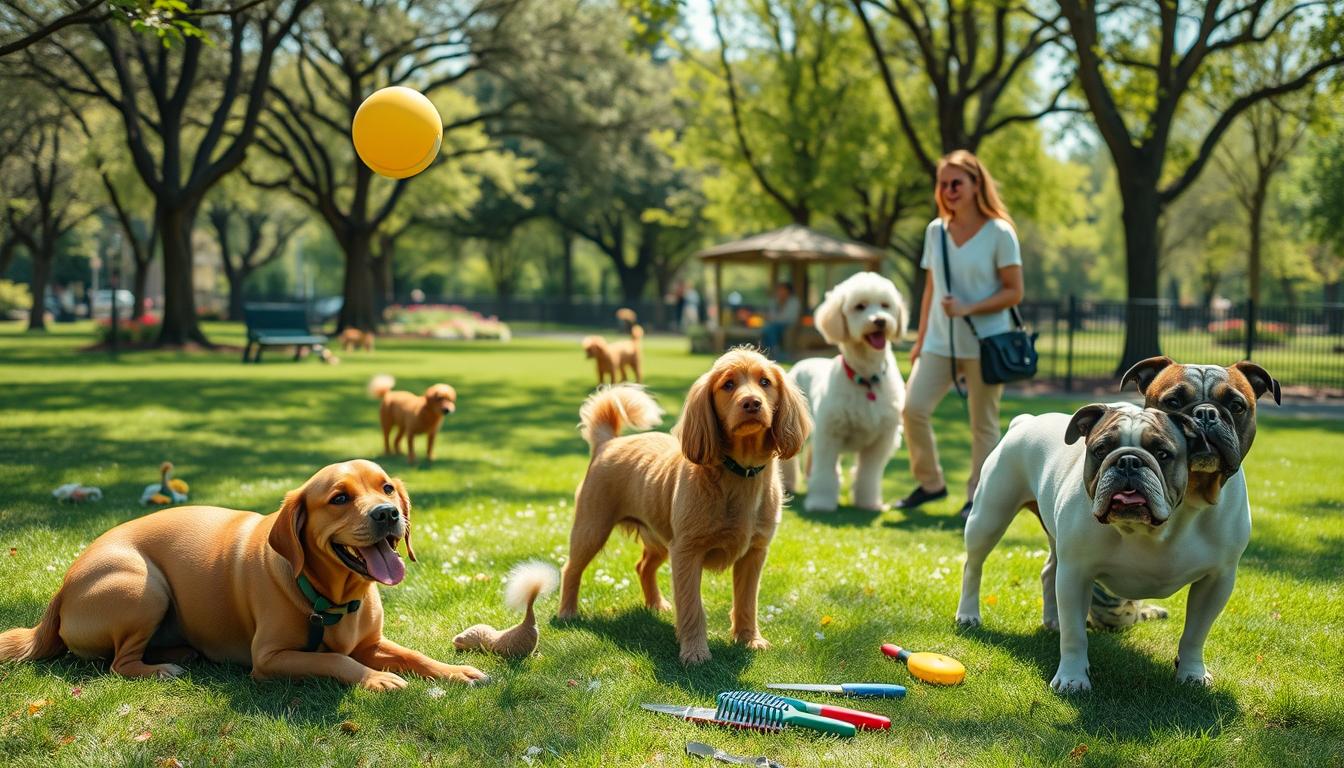Being a dog owner is both joyful and challenging. Each dog breed has its own special needs. In this article, I’ll share tips to help you care for your dog the right way.
Knowing what your dog needs based on their breed is key. This includes grooming, exercise, diet, and health care. I’ll help you understand these important aspects. Let’s start this journey to a better life for you and your dog.
Understanding Your Furry Friend’s Unique Needs
As a dog owner, it’s key to know each breed has its own needs. Understanding breed-specific care is crucial for your dog’s health and happiness. From grooming to activity levels, your dog’s ancestry guides the care they need.
Exploring the Importance of Breed-Specific Care
Dogs were bred for different jobs, like herding or hunting. These origins mean they have specific needs. For example, a Poodle’s long coat or a Border Collie’s energy level require special care.
Decoding Your Pup’s Ancestry and Its Implications
Learning about your dog’s ancestry can reveal a lot about them. A Labrador Retriever’s love for water and a Shar-Pei’s skin issues are just examples. Knowing your dog’s background helps you tailor care that fits their needs.
| Breed | Ancestry | |
|---|---|---|
| Poodle | Developed as a water retriever | Requires regular grooming to maintain their long, curly coat |
| Border Collie | Herding dog breed | Needs plenty of physical and mental stimulation to thrive |
| Shar-Pei | Originated in China as a guard dog | Prone to skin conditions and may require specialized care and products |
Grooming Regimens Tailored to Your Pooch’s Coat

Keeping your dog’s coat in top shape is fun and rewarding. But, you need to know what grooming is best for your dog’s breed. Each breed has its own coat type, like Labradors’ shiny coats or Poodles’ fluffy ones. A grooming plan made just for your dog keeps them healthy, comfy, and looking great.
Start by learning about your dog’s coat. For example, German Shepherds need regular brushing to avoid mats and keep their coat shiny. Siberian Huskies have a double coat that needs special care to stay cool in the summer.
Here are some dog breed-specific grooming tips:
- Long-haired breeds, like the Afghan Hound, may need professional grooming every 4-6 weeks to prevent tangles and matting.
- Short-haired breeds, such as the Greyhound, typically require less frequent brushing but may still benefit from occasional bathing and nail trims.
- Double-coated breeds, like the Chow Chow, need regular undercoat removal to maintain their fluffy appearance and prevent overheating.
By making your dog’s grooming fit their breed, you keep them healthy and looking their best. Enjoy the process of tailored dog grooming and watch your dog shine!
Dog breed-specific care: Customizing Exercise and Activity Levels

Knowing what exercise your dog needs is key to their happiness. Each breed has its own energy level and activity needs. It’s important to match your dog’s exercise to their breed.
Matching Your Pup’s Energy and Keeping Them Entertained
High-energy breeds like herding dogs need lots of physical and mental challenges. They love activities that test their skills, like agility training or fetch. Low-energy breeds, like toy dogs, prefer shorter, calmer playtimes.
To make sure your dog gets the right exercise, follow these tips:
- Learn about your dog’s breed exercise needs and adjust their routine.
- Try different activities to keep them interested, like hiking or puzzle toys.
- Adjust the length and intensity of exercise based on their age, health, and energy.
- Give them chances to do natural behaviors, like digging or chasing, to meet their breed instincts.
By matching your dog’s exercise to their breed, you keep them happy, healthy, and entertained.
| Dog Breed | Typical Exercise Needs | Suggested Activities |
|---|---|---|
| Labrador Retriever | High energy, requires 60-90 minutes of exercise per day | Fetch, swimming, agility training |
| Cavalier King Charles Spaniel | Moderate energy, requires 30-45 minutes of exercise per day | Brisk walks, playtime, nose work |
| Greyhound | Sprinter energy, requires 30-60 minutes of exercise per day | Lure coursing, short bursts of running, chasing games |
Nutritional Considerations for Your Canine Companion

It’s vital to give your dog the right food for their health. Knowing what your dog needs based on their breed is key. Whether it’s a Labrador or a Poodle, the right food can keep them happy and healthy.
Identifying the Best Diet for Your Pup’s Breed
Dog food made for specific breeds meets their unique needs. Different breeds need different things, like energy or joint support. This ensures your dog gets the nutrients they need.
Think about your dog’s size, how active they are, and any health issues they might have. For example, small dogs need more calories and protein because they burn energy fast. Big dogs might need food that helps their joints, like glucosamine and chondroitin.
| Breed | Nutritional Needs | Recommended Dog Food |
|---|---|---|
| Labrador Retriever | High energy, prone to obesity | Breed-specific dog food with moderate calorie and fat content |
| German Shepherd | Moderate energy, joint health concerns | Breed-specific dog food with added glucosamine and chondroitin |
| Poodle | High energy, sensitive skin | Breed-specific dog food with limited ingredients and omega-3 fatty acids |
By choosing the right food for your dog’s breed, you help them get the nutrition they need. This supports their health and helps them thrive.
Health Matters: Breed-Specific Concerns and Prevention
As a pet owner, it’s key to know that some dog breeds face certain health issues. Knowing these concerns helps us keep our pets happy and healthy. We can take steps to prevent problems before they start.
For example, Labrador Retrievers often get hip and elbow dysplasia. Bulldogs might have breathing issues because of their face shape. Dachshunds are more likely to have spinal problems. Working with our vets and watching for these issues helps us act fast.
We can protect our dogs with regular vet visits, genetic tests, and special diets. Learning about our dog’s needs helps us give them the best care. Our dogs count on us to keep them healthy and happy.

